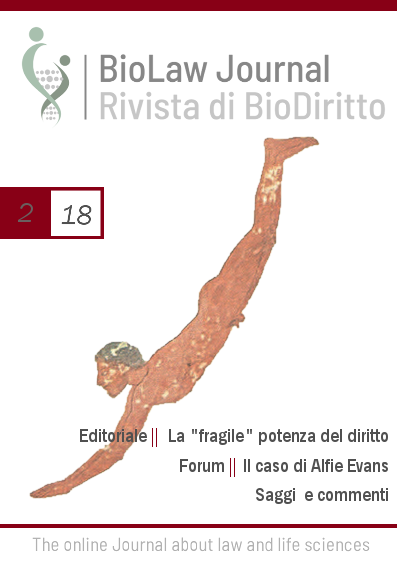L’uso del placebo nella sperimentazione clinica farmacologica: dibattito, giuridico, scientifico e bioetico
DOI:
https://doi.org/10.15168/2284-4503-310Parole chiave:
RCTs, placebo, placebo controlled clinical drug trials, placebo orthodoxy, active control orthodoxyAbstract
The use of placebo as a control treatment represents one of the major and the most controversial matters concerning the experimental drug protocols. The purpose of the present work is to identify and analyze the main issues at stake in the debate about the use of placebo in the context of drug tests in humans, and especially in the RCTs (randomized controlled trials). In the first part of the study, after a brief introduction highlighting the definitions of the concepts of placebo and human drug experimentation, the emphasis will be placed on the explanation of the role of placebo as a means of control in clinical drug trials. The second and the most significant part of the essay deals with the issues connected with the use of placebo in clinical trials, both from an ethical and a scientific point of view, examining the several arguments developed by the “placebo orthodoxy” and the “active control orthodoxy” – the two main views which stand in opposition in the debate under consideration – to uphold their theories. This analysis will be preceded by the examination of the current legal framework about the issue of the use of placebo in the context of human drug experimentation – both from an international and a national perspective. This will lead to a few conclusive observations on the results emerging from this debate and on the possible, future perspectives related to the use of placebo in the field of human drug experimentation, especially focusing on some possible solutions and approaches aiming to reconcile ethical, scientific and legal issues implied by this phenomenon.





